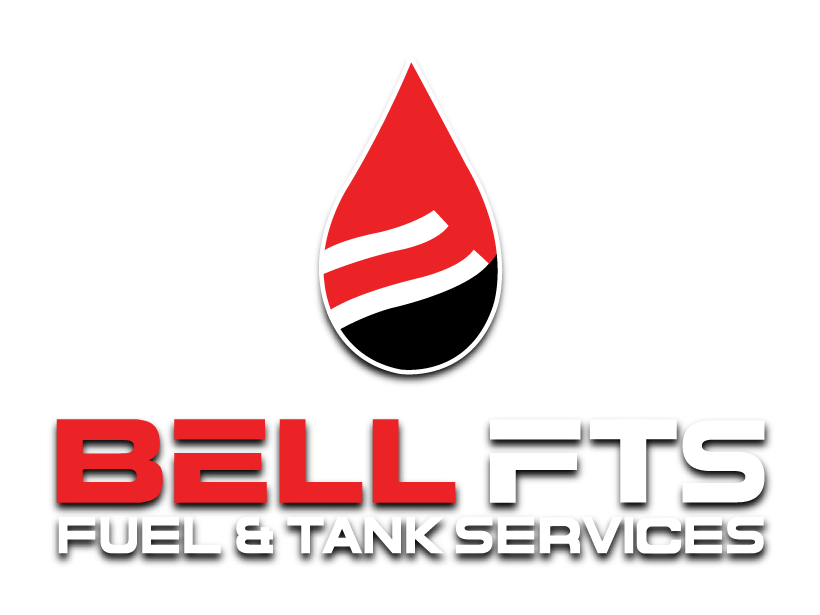Fleets and
Non-Retail Users

Solving & Preventing Fuel Problems For Fleets and Non-Retail Fuel Users
Transportation fleets play a pivotal role in our economy, pun unintended. They handle over 70% of the nation's cargo and contribute nearly $50 billion annually in state and federal highway taxes.
Then there's another group: the nation's "non-retail" fuel consumers. This category encompasses various private fleets of medium to large enterprises. While they might not be the same vehicles transporting goods across highways, they rely on stored fuel for their operations.
For both these essential groups, fuel-related issues, particularly those concerning fuel quality and storage tanks, can disrupt operations. Avoiding these disruptions hinges on having accurate information and taking the necessary action required.
The primary culprit behind current and potential fuel problems is likely microbial contamination. Microbes and the corrosion they cause in storage tanks can lead to vehicle problems. Addressing these issues effectively requires the right approach and the proper tools. Too many fuel users currently rely on guesswork to try and prevent these severe challenges.
Bell Fuel & Tank Services Can Help
Bell Fuel & Tank Services (Bell FTS) offers the right tools and the right approach, to eliminate the guesswork in solving problems like these and keeping them away. Bell Fuel & Tank Services employs a multi-prong hybrid approach to problem-solving and prevention, with a nod to the fact that best practice fuel management for everyone - including fleets and other non-retail fuel users - most often needs to consider different solutions together. One size rarely fits all.
Let the experts at Bell Fuel & Tank Services show you why.
When fleets store fuel, the value of that fuel lays in the value of the work the fuel helps them accomplish. The value is in them being able to get business done.
Fleet decision makers have to view this fuel storage within the context of what’s going to keep their operational costs lowest. A fleet or a transportation company isn’t going to store fuel for a year just for the sake of it. Fuel storage has to bring direct value to them.
BALANCING FLEET EXPENSES WITH FUEL SAVINGS
Most fleets can’t get away completely from storing fuel. The questions they have to reconcile are how long is economical for them to store the fuel, how much should they store, and how to make sure it’s going to do what they need it to do, when they pull it out of storage for use.
HOW LONG CAN FLEETS STORE FUEL?
Just like fueling stations aren’t going to store gasoline for 6 months, fleets don’t want to keep stored fuel around any longer than is needed. They should have a good idea of how long that needs to be, based on how they do business.
When making these decisions, operations management have to balance up-front fuel expense considerations – the PM expenses of any potential fuel additization, labor cost for fuel quality management, tank maintenance, regulation compliance - with the value of back-end savings – reductions in maintenance costs, and the value of having fixed fuel costs. It’s a tight rope that fleet managers have to walk consistently.
TANK MAINTENANCE AND THE COSTS OF COMPLIANCE
Used in fuel storage, both above-ground (AST) and underground (UST) storage tanks have rules and regulations that are monitored by the EPA because of the perceived environmental threats posed by keeping stored petroleum around for long periods of time. This may even include the cost of things like cathodic corrosion protection. So there are inherent costs to get abreast of these regulations, all of which have to be factored into the ROI equation.
KEEPING FUEL AROUND VS. THE HIGH COST OF FUEL
If other financial considerations aren't too onerous, fleets can use fuel storage as a hedge against volatile fuel prices. We saw some of this in 2022, when diesel prices skyrocketed to levels not seen in more than a decade. When fuel prices are high, or when they are volatile, there's a value in achieving cost stability for fleets by keeping a certain amount of stored fuel around. Provided the fuel is purchased when the costs are lower. And, importantly, provided the fuel is properly maintained (including additization) so its condition stays stable and ready for use.
PROTECTING FUEL THROUGH ADDITIZING
In the past, diesel fuel could be stored for 6-12 months or even up to 3-5 years without issues, particularly for entities like the US Army. Nowadays, due to the shift to ULSD (Ultra-Low Sulfur Diesel), which is prone to instability, water accumulation, and susceptibility to microbes, the viable storage life has diminished significantly. This impacts both fleets and regular users who store fuel for future use.
To mitigate this, appropriate fuel additives are essential. Fuel biocides help prevent microbial growth, diesel stabilizers maintain fuel stability by countering environmental reactions, and water control agents are useful for fleets storing fuel for around 3-4 weeks.
While fuel treatment adds to upfront costs, it offers tangible value. Safeguarding fuel with quality biocides and stabilizers is far more economical than dealing with the problems arising from neglecting such precautions.
FUEL STORAGE RECOMMENDATIONS FROM THE TOP
Major petroleum suppliers like Chevron are also getting in the act when it comes to recommending best practices for the fleet customers who use their fuels.
- Purchase clean dry fuel from a reputable supplier and keep the stored fuel cool and dry. The presence of free water encourages the corrosion of metal storage tanks and provides the medium for microbial growth.
- Add a good biocide and corrosion inhibitor, along with an appropriate
stabilizer that contains an anti-oxidant.
- Use a fuel quality management service to regularly test the fuel and, as necessary, clean it through filters and add fresh stabilizers.
- Install a dedicated fuel quality management system that automatically tests and purifies the fuel and injects fresh stabilizer.
The Bell FTS program works with non-retail fuel users and private fleet companies to take a hybrid approach to caring for their stored fuel and tanks, to ensure they stay fuel-problem-free and ready for business.
These non-retail fuel users stay problem-free with the best fuel treatment chemistries that eliminate these problems and make sure their engines and equipment get maximum usefulness. Bell Fuel & Tank Services also provides the best mechanical tank services and fuel problem mediation, to cover the elements of fuel health that fuel treatment chemicals can’t achieve.
And both of these essential elements are supported by state-of-the-art testing and monitoring that ensure fleets and non-retail fuel users know what’s going on with the condition of their fuel. This includes next-generation microbe monitoring and fuel testing that gives both a clear picture of what’s actually going on in the stored fuel, as well as a clear direction as to whether their stored fuel is heading for a problem or not.
Better yet, the Bell FTS program’s Fuel PM approach helps these stored fuel users predict and head off problems instead of reacting to them. This puts them in the driver’s seat with their fuel, always being assured that they are fuel-ready when any need arises!
Helpful Resources
Fuel Changes and How They Affect You
Webinar

What's My Fuel Health Score?
Webinar

Diesel and Ethanol Fuels – Problems and Solutions
Presentation

Four Essentials To Know About Fuel & Three Solutions Your Customers Need
Whitepaper

The Best Ways To Extend The Life of Your DPF System
Tip Sheet

Top Ways Microbes Cause Fuel Headachesfor Fleets & Other Non-Retail Fuel Users
Tip Sheet

Common Factors Affecting Fuel Mileage
Whitepaper

The Fuel Additive Buying Guide
Whitepaper

Health Checklist for Stored Fuels
Checklist

The Essential Fuel Tests You Need To Know About
Tip Sheet

Treating & Preventing Stored Fuel Microbe Problems For Non-Retail Fuel Users
Technical Bulletin

Fuel Tests You Need To Know About
Webinar





